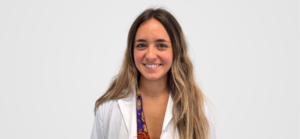Objetivo Diagnóstico and Dreamgenics have signed a framework agreement of institutional collaboration to promote the genetic diagnosis of rare diseases, as well as to develop research projects and training activities related to them.
Most of the RRDs are chronic and degenerative diseases, so patients suffering from them face chronic pain, motor, sensory or intellectual difficulties, which cause physical, intellectual, vision or hearing disabilities, among others. All this translates into an impact on their quality of life and also, in parallel, on the lives of the people around them, who have to face added difficulties in their daily lives.
Approximately 80% of these diseases are of genetic origin and in 2 out of 3 cases they appear in the first years of life, which makes it very difficult to make a correct diagnosis, since during childhood the signs and symptoms usually present in a poorly defined manner, in addition to the great variability that can occur in the symptomatology.
Currently, the average time to diagnosis is about five years, although it can take up to ten years in some cases, so it is essential to perform a genetic study to help identify mutations in genes associated with RRD and, therefore, reduce the time needed to reach a diagnosis.
Objetivo Diagnóstico, the first Association of Undiagnosed People in Spain, was born from the concrete need to obtain the most important answer, the diagnosis. "When you have been looking for a diagnosis for so many years, you realize that more than 90% of the time it is because they have closed the doors to diagnostic opportunities. This agreement is much more than a simple signature, it is a hope of being able to count on great professionals, capable of feeling what people without a diagnosis feel and being able to empathize with them and try to achieve the dream of a diagnosis," the association tells us.
For his part, Carlos Martínez, CEO of Dreamgenics, states that "we are proud to offer patients with rare diseases our experience in NGS data analysis and genetic diagnosis and, in this particular case, to help Objetivo Diagnóstico patients to try to find the cause of their disease using our technology and the extensive knowledge of our team".





